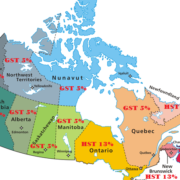CRA Audit & Objections
CRA Audit & Objections
Challenge the CRA / Dealing with the CRA? Here’s what you need to know.
Every year the Canada Revenue Agency (CRA) audits thousands of small and medium size businesses and issues notices of reassessments. Many times the result of these reassessments requires these businesses to pay up to thousands and sometimes millions in tax, interest and penalties.
Is there a chance that these CRA reassessments can be wrong? Yes! It is absolutely critical that business owners are prepared to challenge incorrect reassessments. Handling reassessments improperly can have serious financial implications for your business.
Here are five things that you should be aware of when you receive the CRA’s notices of reassessment:
- The CRA isn’t always right. Notices of reassessments and tax disputes are not necessarily an indication that the taxpayer, or the accountant, has done something wrong. If you feel the CRA has it wrong, as a taxpayer you have the right to challenge the CRA’s interpretation and application of the facts and law to ensure you are not paying more than you have to.
- Act on time. You must file a notice of objection to dispute a notice of reassessment. Generally, you must file a notice of objection within 90-days of the date that the CRA mailed the notice of reassessment. If you do not deliver a proper notice of objection within the 90-day period, you may apply for an extension of time to object. The CRA will consider applications for an extension of time to object if the application meets all relevant conditions and if it is filed within one year of the 90-day period. However, the CRA may deny your application for an extension of time and, therefore, it important to file a proper notice of objection within the 90-day period.
- The onus is on you. The normal reassessment period is three years for individual taxpayers and four years for corporate taxpayers. If the CRA issues a notice of (re)assessment within the normal reassessment period, the onus is on you to prove that the assessment is wrong in fact and law. You should be prepared to present factual and legal support for your position that the reassessment is wrong. If the CRA issues a notice of reassessment outside the normal reassessment period, taxpayers should understand the impact of this shift in the burden of proof. This is an opportunity to take advantage of the shift and make strategic decisions.
- Know what you are talking about. In addition to knowledge of the relevant legislation, the tax dispute process is governed by the case law, rules of procedure, the onus of proof, the standard of proof and the rules of evidence. In our experience, the party with the greater understanding of the legislation, case law and rules often has a significant advantage.
- Contact the right people for help.Clients often struggle to research and retain the right tax accountant and tax lawyer. We recommend that clients take the time to understand their options and speak to competent tax professionals.
This is an example where the CRA made a mistake and resulted in Mr. Irvin Leroux losing millions of dollars.
It was a million-dollar mistake that turned in to a 13-year battle. A British Columbia man lost almost everything in a tax battle with the Canada Revenue Agency. The CRA admits they were wrong, but now refuses to repay his money. His original documents were shredded by the CRA auditor.
The judge found that the auditors owed Mr. Leroux a duty of care and that they breached it in the manner in which they imposed penalties. However, the judge concluded that she was unable to find a causative link between that breach and Mr. Leroux’s losses.
Mr. Leroux had a legitimate position to put forward in saying that if the assessments had been done correctly in the first place, he might have been able to handle all the other problems he had.
The full case can be found here.
Contact SDVC LLP Chartered Accountants for all your CRA review and audit needs. Our team of tax accountants can professionally handle your file.








